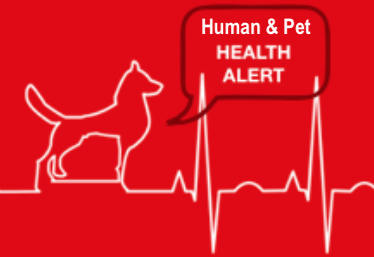
According to a recent article in Newsday, Suffolk County leads the nation in tick-caused meat allergy alpha-gal syndrome.
The Centers for Disease Control and Prevention (CDC) has released new data that shows that Suffolk County led the nation in suspected cases of alpha-gal syndrome (AGS) between 2017 and 2022. The syndrome has been in the news lately with cases reported in Texas but suspected cases of the syndrome have been growing around the country.
Are Healthcare Providers Aware of AGS?
The CDC also conducted a survey of 1,500 primary care physicians, pediatricians, nurse practitioners and physicians assistants that found that almost half had never heard of the syndrome. “Of those aware of AGS, knowledge about diagnosis and management is low.”
Emerging Public Health Problem
CDC describes this as an important emerging public health problem, with potentially severe health impacts that can last a lifetime for some patients. Growing evidence suggests that AGS is primarily associated with the bite of a lone star tick in the United States, but other kinds of ticks have not been ruled out. Localities in the southern, midwestern, and mid-Atlantic regions of the United States identified more people who tested positive.
What symptoms are possible?
The press release from CDC reports, “People who suffer from AGS may experience wide ranging symptoms, including hives or itchy rash; nausea or vomiting; heartburn or indigestion; diarrhea; cough; shortness of breath or difficulty breathing; drop in blood pressure; swelling of the lips, throat, tongue, or eye lids; dizziness or faintness; or severe stomach pain. Symptoms commonly appear 2-6 hours after eating food or other exposure to products containing alpha-gal (for example, gelatin-coated medications). AGS is diagnosed by an allergist or other healthcare provider and requires a thorough history with compatible symptoms, and diagnostic testing for antibodies specific to alpha-gal. Your healthcare provider may also recommend allergy skin testing.
Preventing tick bites is important in preventing tickborne disease and can reduce your chances of developing AGS.
Are dogs affected by a tick infected with AGS?
According to the AKC website, “Canine Ehrlichiosis is found worldwide. It is caused by several types of ticks: The Brown Dog Tick, Lone Star Tick, and American Dog Tick. Signs include fever, poor appetite, and low blood platelets (cells that help the clotting of blood), often noted by nose bleeding or other signs of bruising or anemia. Signs start about 1-3 weeks after the bite of an infected tick. Dogs diagnosed and treated promptly can have a good prognosis, but those who go on to the chronic phase have more difficulty recovering.”
Sources:
Newsday [Link]
CDC [Link]
AKC [Link]
